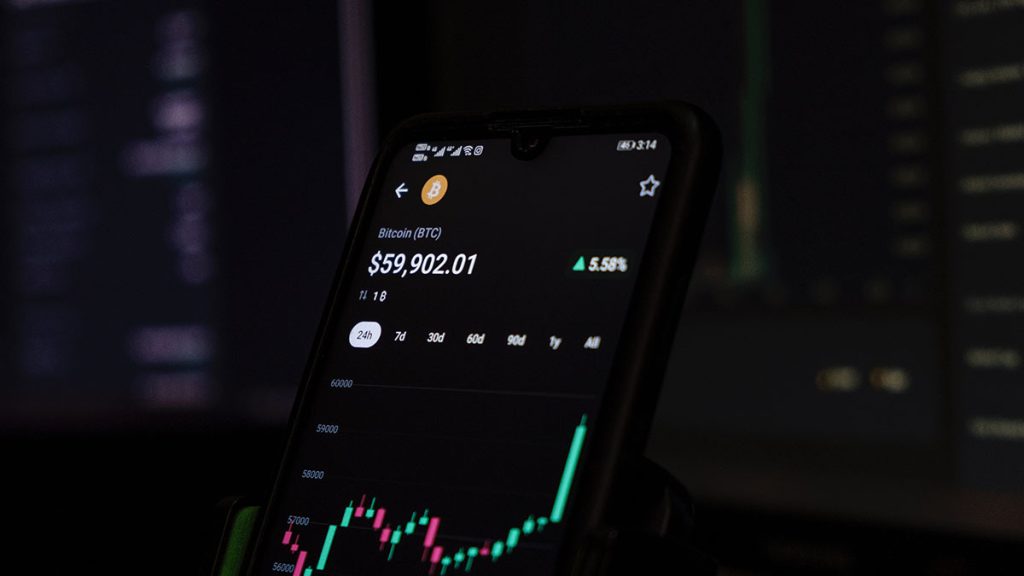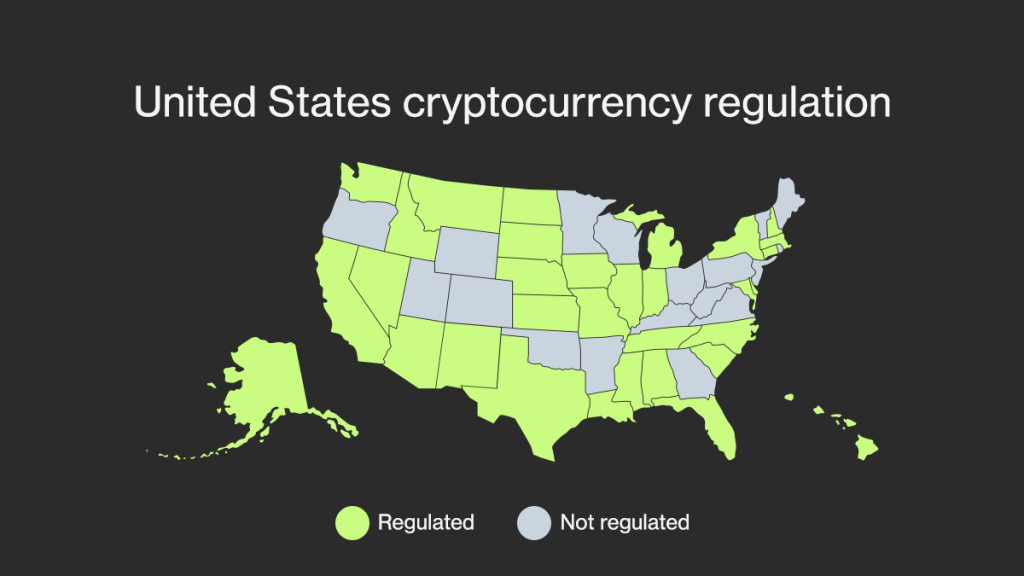Many countries around the world are taking the first steps to regulate cryptocurrency. While some have tried to ban cryptocurrencies altogether – like Bangladesh did in 2019 – others are embracing the new technology by establishing regulatory bodies.
Meanwhile, in the United States, crypto regulations are a complicated and evolving topic. Since the first cryptocurrency, Bitcoin, was created in 2009, the US government has struggled to determine a clear definition and regulatory framework for these digital assets. The confusion is often reflected in varying opinions from government officials across federal and state agencies, as well as conflicting legislation passed by state governments.
In this article, we take a closer look at crypto regulations in the United States.
We also wrote articles about crypto regulations in Europe and crypto status around the world, so check them out.
Is Cryptocurrency Legal in the United States?
Virtual currencies are considered a medium of exchange in the United States but are not legal tender. Crypto is not backed or issued by the US government or central bank. However, they are legal and trading crypto is allowed, but some states have enacted additional laws that make it difficult to use cryptocurrencies within their borders. For example, New York state now requires anyone buying crypto to register with FinCEN.
Cryptocurrency Regulations in the United States

Cryptocurrency regulations are divided into two categories: federal and state. Federal cryptocurrency regulations cover the use of virtual currencies as a payment method and their classification as legal tender. State cryptocurrency regulations regulate the use of digital tokens for intrastate commerce, such as California’s Virtual Currency Law, that requires crypto exchanges to register with its Department of Business Oversight (DBO).
Additionally, the US also enacts intracompany cryptocurrency regulation. It covers how businesses can use digital tokens in their operations, such as New York’s BitLicense and Wyoming’s Virtual Bank Charter Act, which allow financial institutions to create bank accounts for holders of cryptocurrencies through a centralized ledger maintained by authorized agents acting on behalf of clients who deposit funds into those accounts before transferring them elsewhere.
Overview of Crypto Regulations in the United States by State

Alabama is the first US state to recognize bitcoin as a legal form of currency officially. It also allows mining (with a permit) and exchanges. There are no specific sales and use tax requirements.
Alaska allows crypto mining and exchanges with a license. The use and sale of crypto are not subjected to tax.
Arizona allows mining and exchanges. There are no specific tax requirements.
Arkansas has no specific legislation pertaining to crypto mining and exchanges. The use and sale of crypto are not subjected to tax.
California prohibits mining but allows exchanges (with restrictions). Tax laws apply.
Colorado prohibits mining and exchanges (but does not regulate them). There are no specific tax requirements.
Connecticut allows exchanges but, in some cases, requires a permit. There are no specific sale and use tax requirements.
Delaware allows exchanges (with a permit). The use and sale of crypto are not subjected to tax.
Florida has no restrictions on crypto mining and allows exchanges (with a permit). There are no specific sale and use tax requirements.
Georgia has no specific legislation prohibiting crypto mining and exchanges. There are no specific sale and use tax requirements.
Hawaii allows exchanges but requires a money transmitter license. There are no specific sale and use tax requirements.
Idaho has no crypto mining restrictions and allows exchanges (with a license). There are no specific sale and use tax requirements.
Illinois allows mining and exchanges. There are no specific sale and use tax requirements.
Indiana allows mining and exchanges. There are no specific sale and use tax requirements.
Iowa requires money services licenses. There are no specific sale and use tax requirements.
Kansas requires most crypto exchanges to obtain a license. Tax laws apply.
Kentucky has no specific legislation on crypto mining and exchanges. Tax laws apply.
Louisiana requires a license with an exemption for small exchanges with fewer than $35,000 in transfers per annum. There are no specific sales and use tax requirements.
Maine has no specific legislation pertaining to crypto mining and exchanges. There are no specific sale and use tax requirements.
Maryland requires money transmitter licenses. There are no specific sale and use tax requirements.
Massachusetts requires money transmitter licenses. There are no specific sale and use tax requirements.
Michigan requires money transmitter licenses. There are no specific sales and use tax requirements.
Minnesota has no specific legislation pertaining to crypto mining and exchanges. There are no specific sales and use tax requirements.
Mississippi requires money transmitter licenses. There are no specific sales and use tax requirements.
Missouri requires money transmitter licenses. Bitcoin is a nontaxable property.
Montana requires money transmitter licenses. The use and sales of crypto are not subjected to tax.
Nebraska exempts crypto exchanges from money transmitter laws. However, they must comply with similar regulations that are imposed on banks. There are no specific sales and use tax requirements.
Nevada requires most crypto exchanges to obtain a license. There are no specific sales and use tax requirements.
New Hampshire requires some exchanges to obtain money transmitter licenses. Use and sales of crypto are not subjected to tax.
New Jersey has no specific legislation pertaining to crypto mining and exchanges. Crypto is treated as a cash equivalent and taxed accordingly.
New Mexico requires exchanges to obtain money transmitter licenses. There are no specific sales and use tax requirements.
New York requires crypto businesses to obtain an expensive BitLicense. Crypto is a cash equivalent and taxed accordingly.
North Carolina requires exchanges to obtain money transmitter licenses. There are no specific sales and use tax requirements.
North Dakota requires exchanges to obtain money transmitter licenses. There are no specific sales and use tax requirements.
Ohio has no specific legislation pertaining to crypto mining and exchanges. There are no specific sales and use tax requirements.
Oklahoma has no specific legislation pertaining to crypto mining and exchanges. There are no specific sales and use tax requirements.
Oregon has no specific legislation pertaining to crypto mining and exchanges. The use and sales of crypto are not subjected to tax.
Pennsylvania does not consider exchanges to be money transmitters. There are no specific sales and use tax requirements.
Rhode Island does not have any specific use or sales tax requirements.
South Carolina requires exchanges that involve fiat currency to register. No specific sale and use tax requirements.
South Dakota requires exchanges to obtain money transmitter licenses. There are no specific sales and use tax requirements.
Tennessee requires some exchanges to obtain a license. There are no specific sale and use tax requirements.
Texas requires some exchanges to obtain a license. There are no specific sale and use tax requirements.
Utah does not require crypto exchanges to obtain a license if an exchange does not involve cash transactions. There are no specific sale and use tax requirements.
Vermont has no specific legislation pertaining to crypto mining and exchanges. There are no specific sale and use tax requirements.
Virginia has no specific legislation pertaining to crypto mining and exchanges. There are no specific sales and use tax requirements.
Washington requires all crypto businesses to obtain a license. Use and sales of crypto are not subjected to tax.
West Virginia has no specific legislation pertaining to crypto mining and exchanges. There are no specific sales and use tax requirements.
Wisconsin has no specific legislation pertaining to crypto mining and exchanges. There are no specific sales and use tax requirements.
Wyoming does not require a license for crypto exchanges. There are no specific sales and use tax requirements.
Conclusion
No single regulation currently exists for all cryptocurrencies in the United States. Instead, each state has its own laws regarding how crypto can be used within its borders. Some states have passed legislation that allows their citizens to pay taxes with cryptocurrency, while other states have yet to adopt any policies related directly to digital currencies.



